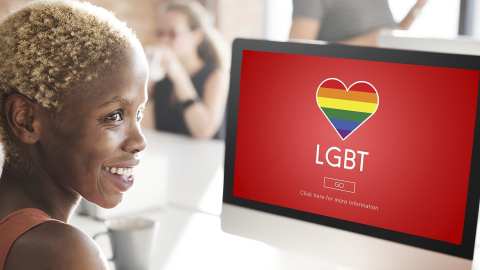Celebrating Diversity in the Workplace for LGBT Pride Month

Diversity in the workplace is a critical attribute to any business, and it comes in different forms. At its core, diversity is about embracing people of different ages, races, genders, and sexual orientations.
While the 1964 Civil Rights Act offers protection to people in the United States from discrimination based on race, color, religion, sex, or national origin, no federal law protects workers who fall within the LGBT (lesbian, gay, bisexual, and transgender) community from employment discrimination.
In honor of LGBT Pride Month, we want to help organizations worldwide celebrate diversity and enjoy the advantages diversity brings to the workplace by including people who have different backgrounds and perspectives.
Why Diversity Matters and the Advantages LGBT Workers Offer
According to Big Think Expert David Gilboa, co-founder of Warby Parker eyewear company, LGBT employees, like other minorities, bring a wealth of different and valuable perspectives to every organization.
Organizations that embrace diversity in the workplace are not only more productive, they are also more creative and possess competitive advantages as well, according to a 1995 study by the Society for Human Resource Management (SHRM).
Research from the University of California, Los Angeles (UCLA), cited by Inc., suggests that having more LGBT employees can have a positive impact on a business’ bottom line:
“Nearly all (92 percent) of companies with anti-discrimination policies credit the policies with having a positive impact on annual sales. In addition, executives say the policies lead to better recruitment and retention of top talent.”
Another UCLA study also suggests a correlation between a nation’s LGBT rights and its economic development: Countries with stronger LGBT rights tend to have higher levels of economic development and per capita income in emerging economies than countries with fewer rights.
Challenges Employees and Training Programs Face in the Workplace
According to a 2017 study by CareerBuilder, nearly four out of 10 LGBT workers report feeling bullied at work, a statistic that is 11% higher than the national average of all workers combined. This bullying can result in high health, hiring, and training-related costs for businesses:
- 19% of surveyed bullied LGBT workers reported health-related problems;
- 15% said they called in sick to work as a result of bullying; and
- 41% reported leaving a job because they felt bullied.
Incorporating compulsory diversity and inclusion training into the work environment to deal with these issues presents some challenges for human resources professionals. In some cases, it can inadvertently increase certain groups’ anger, resistance, and racial or cultural biases. However, many diversity training programs have proven effective when paired with other diversity initiatives.
How Organizations Can Embrace and Celebrate LGBT Diversity
According to Big Think expert, attorney, and Freedom to Marry president Evan Wolfson in his “Support the LGBT Workforce” video, promoting tolerance as a diversity & inclusion initiative isn’t enough. Companies need to support their most vulnerable minorities and fully integrate them into the life of the organization.
“It starts with the recognition that this is good for the business, not just good for those employees, and it goes to then what are the actual real needs of those employees, those people, who we want to make sure are feeling able to fully enrich and contribute to the entire team. It is also incumbent upon gay people, transgender people, people of color, women, to engage in that conversation and to not get defensive or beaten down or fearful.”
Contact Big Think+ now to learn more about the strategies in our Diversity & Inclusion course. Our team of experienced instructional designers can help you find or develop the right video learning program to fit your organization’s culture and diversity initiatives.




